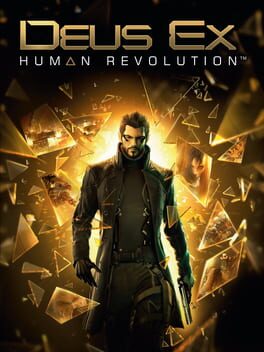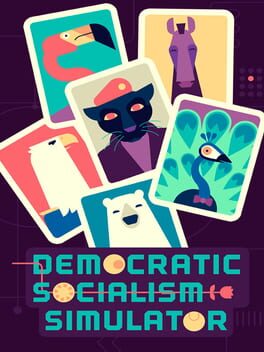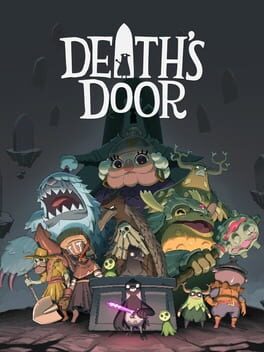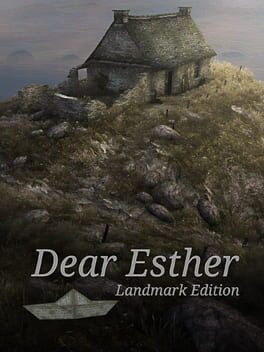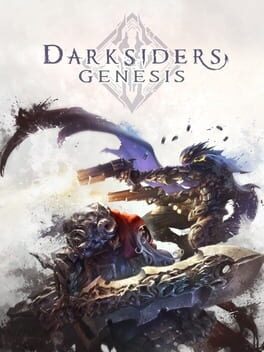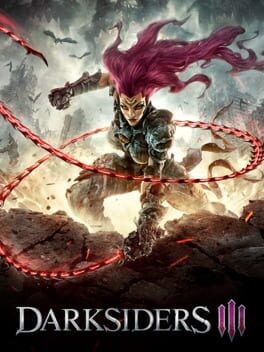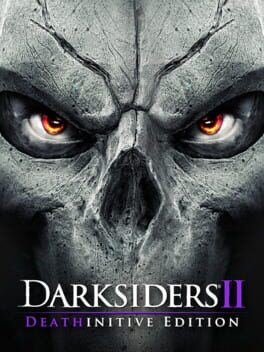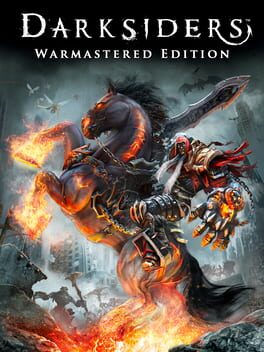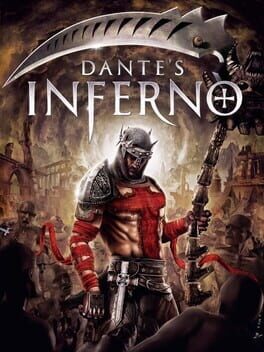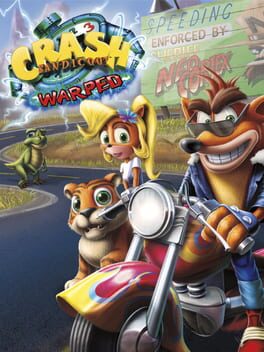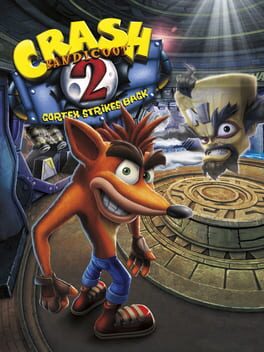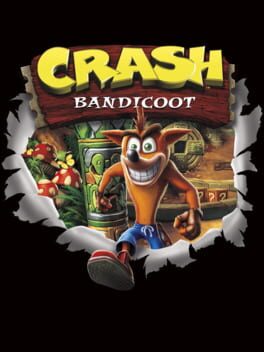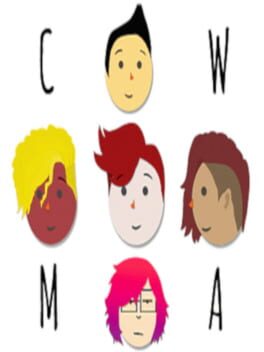EuphoriaGremlin
A prequel to Deus Ex, Human Revolution is set in the early days of mass cybernetic augmentation. Left for dead after the company he works for is attacked, Adam Jensen is rebuilt and tasked with investigating the terrorists responsible. The plot, in true cyberpunk fashion, spirals into a web of corporate lies and world-controlling conspiracies.
I feel like this game is a fairly slow burn and that's not going to be for everyone. After the exciting opener we're dropped into a tense stealth operation; while you can put your experience points into becoming a walking grumbling tank, the game prefers you to be quiet - that is, apart from the boss fights, which are the weakest aspect of Human Revolution, given that they force you into open combat. Fans of writing will find a lot to love amidst Detroit's grimy streets and Hengsha's seedy underbelly; many of your decisions can have ranging consequences, and are also weighted by your role-playing and leveling choices.
I feel like this game is a fairly slow burn and that's not going to be for everyone. After the exciting opener we're dropped into a tense stealth operation; while you can put your experience points into becoming a walking grumbling tank, the game prefers you to be quiet - that is, apart from the boss fights, which are the weakest aspect of Human Revolution, given that they force you into open combat. Fans of writing will find a lot to love amidst Detroit's grimy streets and Hengsha's seedy underbelly; many of your decisions can have ranging consequences, and are also weighted by your role-playing and leveling choices.
You're a democratic socialist and you've just been elected President of the USA - isn't it fun when games explore the realms of fantasy? This game uses a Tinder-like (or Reigns-like) swiping interface as its primary method of interaction; folk appear before you with policies they want enacted and you swipe left or right to bin them off or attempt to put them into law. You can't simply do what you want though; the interface across the bottom of the screen shows the various resources you have to balance as you attempt to put your political stamp on the US. Some like money, pollution, and the sense of worker unity are simple meters, but I particularly like the voter grid which tracks a sample of the population and lets you see what kinds of policies interest each voter, giving you a real time indication of the popularity of your policies. It's silly and irreverent but there's definitely some neat ideas to be found!
2021
The initial premise for Death's Door is fantastic. We play as a crow who works as a grim reaper but when one of the souls they intend to reap is nicked they follow the culprit and discover the titular Death's Door, a sealed portal that can only be opened by collecting the souls of 3 ancient creatures. Thus begins our adventure, which takes us across as beautifully bleak fantasy land. You spend a lot of time in solitude in this game, and it builds a wonderful sense of atmosphere.
Gameplay is a kind of Zelda-Soulslike fusion. Presented with an isometric view, you wander around and hack away at enemies, but the high difficulty and need to constantly retry bosses due to quick deaths can be offputting for some. There's a lot of joy to be found in simply exploring the world, but some of the collectibles amount to busywork. It's certainly still a charming game and one I find myself thinking about a lot.
Gameplay is a kind of Zelda-Soulslike fusion. Presented with an isometric view, you wander around and hack away at enemies, but the high difficulty and need to constantly retry bosses due to quick deaths can be offputting for some. There's a lot of joy to be found in simply exploring the world, but some of the collectibles amount to busywork. It's certainly still a charming game and one I find myself thinking about a lot.
The OG walking sim. In Dear Esther we wander around a linear track on a remote Hebridean island. It's not just a sightseeing tour though; as you walk, a narration starts up, taking us through a story which unfolds as you walk and parts of which can be triggered as you look at the various things you come across. It's a weird sell, frankly, and not for everyone. It's also odd that the story has an element of randomness to it, with replays showing that the narration isn't always consistent which can shed different lights on the story being told, but it's not the kind of game I imagine one plays and replays in the same sitting so I think a lot of players would miss this. A bit pretentious and obviously not the most exciting of times, but I think Dear Esther still has a place as an intriguing museum piece.
2019
A prequel to the staggeringly lore-obsessed Darksiders series, Genesis puts us in the shoes of Strife, the moody gunslinger of the Apocalypse riders. Strife, alongside War, are kind of like celestial bounty hunters, sent out on contracts by their bosses. This time around they're tasked with investigating Lucifer because there's a suspicion that he might be up to no good (wonder what clued them in to that, maybe that he’s the literal Devil). Strife is a lot more prone to wisecracks than the other three, and that helps make him the most engaging character in the series thus far.
Genesis is yet another gameplay reinvention for the series as this game is a top-down twin-stick shooter. This actually works really well; Strife controls smoothly and you get a fair bit of customization to his abilities as you progress. War is always by your side and so you can freely switch between brothers during gameplay, leaning into some light puzzle solving that often splits the brothers up. Although it's smaller than the other Darksiders games, it's also a lot more tightly constructed and well-written, making it the best of the lot so far.
Genesis is yet another gameplay reinvention for the series as this game is a top-down twin-stick shooter. This actually works really well; Strife controls smoothly and you get a fair bit of customization to his abilities as you progress. War is always by your side and so you can freely switch between brothers during gameplay, leaning into some light puzzle solving that often splits the brothers up. Although it's smaller than the other Darksiders games, it's also a lot more tightly constructed and well-written, making it the best of the lot so far.
2018
Please don't play this on PS4; it's broken beyond belief. Play it on another system for the proper experience.
Darksiders III follows Fury, the token girl of our quartet of Apocalyptic riders. She's got a bit of a complex as she leaps at the chance to prove she's a worthy leader of the four after she is sent to Earth after the Apocalypse to recapture the Seven Deadly Sins. For the first time in the series however, I actually found myself giving a damn about the writing as Fury's character arc is genuinely compelling, if not anything new.
It seems to be the series' trademark that each game rips off something different, so in that tradition Darksiders III is a Souls-like. Combat tends to focus on dealing with one enemy at a time, you take a decent whack of damage if you mistime your blocks or dodges, and you gather up souls as currency to spend on upgrading your abilities at checkpoints. There's little depth however; this is a barebones Souls-clone, and presumably won't scratch the itch for diehard fans of that franchise. As an introduction for non-Souls players (like me) it actually works quite neatly though!
Darksiders III follows Fury, the token girl of our quartet of Apocalyptic riders. She's got a bit of a complex as she leaps at the chance to prove she's a worthy leader of the four after she is sent to Earth after the Apocalypse to recapture the Seven Deadly Sins. For the first time in the series however, I actually found myself giving a damn about the writing as Fury's character arc is genuinely compelling, if not anything new.
It seems to be the series' trademark that each game rips off something different, so in that tradition Darksiders III is a Souls-like. Combat tends to focus on dealing with one enemy at a time, you take a decent whack of damage if you mistime your blocks or dodges, and you gather up souls as currency to spend on upgrading your abilities at checkpoints. There's little depth however; this is a barebones Souls-clone, and presumably won't scratch the itch for diehard fans of that franchise. As an introduction for non-Souls players (like me) it actually works quite neatly though!
First of all, "Death-initive", really?! Dear oh dear.
Anyway, Darksiders II follows Death, the Hot Topic brother of War, who sets out on an adventure to prove that War didn't start the Apocalypse in the previous game but almost immediately gets sidetracked by a gloopy black tar called Corruption that is spreading across the cosmos. Whereas the first game was a Zelda-clone, Darksiders II is more of a Diablo-esque action RPG. The combat is a fast-paced hack-and-slash affair and everything in the game sheds loot for Death to pick up and slap on himself like a haphazard amateur armourer. Watch out though because it's easy to break the game as it struggles to keep up with your damage output! Much bigger than the first game, Darksiders II gives us a bunch of open world stages with quests to find and collectibles to hoover up, although the budget clearly ran out towards the end.
Anyway, Darksiders II follows Death, the Hot Topic brother of War, who sets out on an adventure to prove that War didn't start the Apocalypse in the previous game but almost immediately gets sidetracked by a gloopy black tar called Corruption that is spreading across the cosmos. Whereas the first game was a Zelda-clone, Darksiders II is more of a Diablo-esque action RPG. The combat is a fast-paced hack-and-slash affair and everything in the game sheds loot for Death to pick up and slap on himself like a haphazard amateur armourer. Watch out though because it's easy to break the game as it struggles to keep up with your damage output! Much bigger than the first game, Darksiders II gives us a bunch of open world stages with quests to find and collectibles to hoover up, although the budget clearly ran out towards the end.
The angriest game about bureaucracy you'll ever play. Darksiders' plot concerns the Apocalypse being called too early and War is held responsible for it. Sent to Earth a century after humanity has been eradicated in the wake of the war between Heaven and Hell, War is tasked with finding out who actually started the early Apocalypse and bring them to justice. There's a lot more going on here, but none of it is past surface level guff - Darksiders is sort of like if a Warhammer 40,000 fan decided to discover theology but through the medium of mid-90s comic books. It takes its lore seriously, but there's little substance; it's just sour faces gurning at each other and mumbling about the cosmos.
Gameplay is more or less lifted from the 3D Legend of Zelda games. War lumbers around the decaying ruins of human civilisation, occasionally trundling his little legs into dungeons, solving some puzzles until he finds a new item, which is then used to beat a boss. Combat is fairly straightforward; it works, but it lacks depth and feels kind of stodgy as War moves at roughly the speed of a bloodsoaked glacier. It's also one of those games where every idea has been cherry-picked from better games, which is especially apparent when you get to the dungeon that gives you a gun that shoots blue and orange portals.
A perfectly playable, utterly average game.
Gameplay is more or less lifted from the 3D Legend of Zelda games. War lumbers around the decaying ruins of human civilisation, occasionally trundling his little legs into dungeons, solving some puzzles until he finds a new item, which is then used to beat a boss. Combat is fairly straightforward; it works, but it lacks depth and feels kind of stodgy as War moves at roughly the speed of a bloodsoaked glacier. It's also one of those games where every idea has been cherry-picked from better games, which is especially apparent when you get to the dungeon that gives you a gun that shoots blue and orange portals.
A perfectly playable, utterly average game.
2010
A shameless God of War clone, but not a bad one! Perhaps the loosest adaptation of anything ever, Dante's Inferno follows the titular Dante, here refigured not as an Italian poet but as a bloodthirsty crusader who kills Death, nicks his scythe, comes home to find the love of his life spirited away to Hell by the Devil and resolves to murder his way through Lucifer's house until he gets her back. It's a frankly insane premise, but remarkably it works! Each level of Hell is rendered in exquisitely grotesque detail, and the attack animations are fluid and brutal. Combat is simple but effective, with the same light-heavy attack format as God of War, but Dante can stuff experience points into two different paths, either to power up the evil power of his scythe or the holy power of his cross (which shoots lasers, you know, like real crucifixes don't). A truly unhinged game, but in the best way.
One of the PS1's many 3D platformers, Croc is famous for originally being intended as a Yoshi game but repurposed after a deal with Nintendo fell through. Unfortunately, while you might have nostalgia for its colourful levels and twee soundtrack, the game doesn't stand the test of time. Tank controls make the platforming feel stiff and ungainly, level design quickly falls into the trap of presenting platforms over voids rather than coherent worlds, and - incredibly - the entire collectathon aspect of platformers is rendered entirely pointless as you don't actually need to collect anything unless you want to play the laziest secret level in existence.
The N-Sane remake of Crash 3. This time around series baddie Neo Cortex teams up with evil mask Uka Uka and fellow mad scientist N. Tropy to send their forces throughout time in order to gather crystals, forcing Crash and his little sister Coco on an adventure across time to stop them. The cartoonish vibes are still strong - don't expect a serious time travel story! There's even more level variety than in 2, but it's not all for the better; some, like the racing or flying levels are a bit rubbish, but the core stages are as good if not better than they are in 2. The difficulty is finally in a perfect sweet spot, the boss fights are finally fun to play, and you even learn new moves as you progress that are well implemented into the level challenges. A worthy finale to the trilogy!
The N-Sane remake of Crash 2. Crash returns to action, this time seemingly working alongside series villain Neo Cortex, who ropes his nemesis into collecting magic crystals for him ostensibly to stop an even bigger baddie from taking over the world. The writing leans heavily into Saturday morning cartoon vibes, which works really well! The gameplay is also a vast improvement over the first game, with a greater variety of level designs, even more challenges for masochistic completionists to sink their teeth into, and a much more tightly designed difficulty curve.
2017
The N-Sane remake of the original Crash Bandicoot. We play as the titular Crash, a genetically engineered bandicoot who takes on an adventure to defeat local mad scientist Neo Cortex from entirely industrialising his island paradise home. A somewhat unique take on 3D platforming, Crash has you run into or out of the screen as opposed to free movement or sidescrolling, although the latter also makes an appearance here. Despite the remake making some much-needed quality of life improvements, such as including an autosave rather than the original release's unforgivable save function, it still controls horribly and showcases plenty of examples of awful difficulty. Not worth your time, even in this form.
A brief visual novel following a young chap heading out on a date, but lost amidst his struggles with his own crippling anxiety. I wouldn't necessarily call it "good", per se, but it's certainly an unsettling and uncomfortably accurate depiction of living with anxiety and trying to deal with the ways it can so easily mess your days up.
2019
As close to a licensed SCP game as we'll likely ever get, Control is excellent. I normally avoid creepy or eerie games, but Control is extremely engrossing, so much so that despite the shudders that some of its New Weird monsters and happenings gave me, I found myself returning without fail. We play as Jesse, a young woman guided by a mysterious presence in her mind to The Oldest House, the strange shifting HQ of the Federal Bureau of Control. She's investigating the FBC because of its connection to her missing brother, but when she gets there she finds herself trapped by The Hiss, a malevolent invading power. Deeply entrenched in the mind-bending ideas and imagery, Control's world is a distinct joy to lose oneself in. The gameplay is fairly standard third-person shooter fare, helped along by a few psionic powers to augment your fighting, but the atmosphere will keep you locked inside The Oldest House.
